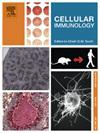探索溶瘤病毒和肠道微生物群增强结直肠癌CAR-T细胞治疗的新策略。
IF 2.9
4区 医学
Q2 CELL BIOLOGY
引用次数: 0
摘要
结直肠癌是全球第三大最普遍的恶性肿瘤(占新发癌症病例的10.0%),也是癌症相关死亡的第二大原因(占癌症死亡率的9.4%),其发病率继续上升,对人类健康构成重大威胁。尽管手术、放疗和化疗等传统治疗方法仍然是临床的主流,但它们在改善患者生存和生活质量方面的疗效已经达到了一个平台,需要探索新的治疗方法。嵌合抗原受体(CAR) t细胞疗法已经成为一种非常有前途的癌症治疗方法。值得注意的是,实体肿瘤微环境(TME)的复杂性为CAR-T治疗在CRC中的应用带来了挑战,包括抗原异质性、免疫抑制和脱靶毒性。然而,多靶点CAR-T细胞的发展及其与免疫调节药物的联合具有重要的临床潜力。此外,近年来,溶瘤病毒(OV)治疗因其独特的抗肿瘤机制而受到广泛关注。我们的研究表明,OVs可以精确靶向结直肠癌组织,通过选择性感染和细胞内复制诱导肿瘤细胞凋亡,同时激活全身抗肿瘤免疫反应,抑制血管生成,从而达到多维度的治疗效果。进一步的研究表明,OVs可以作为治疗分子的基因传递载体,或与CAR-T疗法和免疫检查点抑制剂协同作用,显著提高治疗效果。同时,肠道微生物群是CRC进展的关键调节因子,可以通过代谢调节和免疫重塑影响CAR-T和OVs治疗。基于这些机制,本文创新性地提出了“OVs-gut microbiota-CAR-T”的三方策略:OVs可以重编程免疫抑制TME并释放肿瘤抗原,增强CAR-T的浸润和活性,而肠道微生物群的同步调节可以进一步缓解免疫抑制,降低治疗毒性,建立双向协同循环。这种跨学科的整合策略可能提供一种突破性的方法来克服目前CRC的治疗局限性,并将精确的肿瘤免疫治疗推进到新的领域。本文章由计算机程序翻译,如有差异,请以英文原文为准。
Exploring novel strategies of oncolytic viruses and gut microbiota to enhance CAR-T cell therapy for colorectal cancer
Colorectal cancer (CRC), ranking as the third most prevalent malignant tumor globally (accounting for 10.0 % of new cancer cases) and the second leading cause of cancer-related deaths (9.4 % of cancer mortality), continues to escalate in incidence, posing a significant threat to human health. Although conventional therapies such as surgery, radiotherapy, and chemotherapy remain the clinical mainstay, their efficacy in improving patient survival and quality of life has reached a plateau, necessitating the exploration of novel therapeutic approaches. Chimeric antigen receptor (CAR) T-cell therapy has emerged as a highly promising approach for cancer treatment. Notably, the complexity of the solid tumor microenvironment (TME) presents challenges for the application of CAR-T therapy in CRC, including antigen heterogeneity, immune suppression, and off-target toxicity. However, the development of multi-target CAR-T cells and their combination with immunomodulatory drugs holds significant clinical potential. Furthermore, in recent years, oncolytic virus (OV) therapy has garnered substantial attention due to its unique antitumor mechanisms. Our study demonstrates that OVs can precisely target CRC tissues, inducing tumor cell apoptosis through selective infection and intracellular replication while concurrently activating systemic antitumor immune responses and inhibiting angiogenesis, thereby achieving multidimensional therapeutic effects. Further investigations reveal that OVs can serve as gene delivery vectors for therapeutic molecules or synergize with chimeric antigen receptor T-cell (CAR-T) therapy and immune checkpoint inhibitors to significantly enhance treatment efficacy. Simultaneously, gut microbiota, a critical regulator of CRC progression, can influence both CAR-T and OVs therapies through metabolic modulation and immune remodeling. Building upon these mechanisms, this review innovatively proposes a tripartite “OVs-gut microbiota-CAR-T" strategy: OVs may reprogram the immunosuppressive TME and release tumor antigens to enhance CAR-T infiltration and activity, while concurrent modulation of gut microbiota could further alleviate immunosuppression and reduce treatment toxicity, establishing a bidirectional synergistic loop. This interdisciplinary integration strategy may provide a groundbreaking approach to overcome current therapeutic limitations in CRC and advance precision tumor immunotherapy to new frontiers.
求助全文
通过发布文献求助,成功后即可免费获取论文全文。
去求助
来源期刊

Cellular immunology
生物-免疫学
CiteScore
8.20
自引率
2.30%
发文量
102
审稿时长
30 days
期刊介绍:
Cellular Immunology publishes original investigations concerned with the immunological activities of cells in experimental or clinical situations. The scope of the journal encompasses the broad area of in vitro and in vivo studies of cellular immune responses. Purely clinical descriptive studies are not considered.
Research Areas include:
• Antigen receptor sites
• Autoimmunity
• Delayed-type hypersensitivity or cellular immunity
• Immunologic deficiency states and their reconstitution
• Immunologic surveillance and tumor immunity
• Immunomodulation
• Immunotherapy
• Lymphokines and cytokines
• Nonantibody immunity
• Parasite immunology
• Resistance to intracellular microbial and viral infection
• Thymus and lymphocyte immunobiology
• Transplantation immunology
• Tumor immunity.
 求助内容:
求助内容: 应助结果提醒方式:
应助结果提醒方式:


